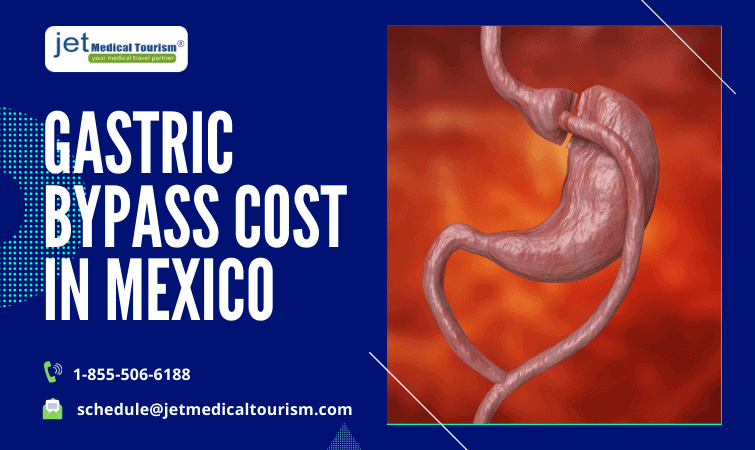When to Choose Bariatric Surgery Over GLP-1 Medications
In recent years, GLP-1 medications like Ozempic, Wegovy, and Mounjaro have gained massive popularity as tools for weight loss. These injectable drugs, which mimic the hormone glucagon-like peptide-1, have helped many individuals shed pounds by suppressing appetite and improving insulin sensitivity.
Large clinical trials show that semaglutide (Wegovy) can lead to an average weight loss of about 15% over 68 weeks, significantly more than placebo. Tirzepatide (Mounjaro) has also demonstrated superior weight loss and glycemic control in patients with type 2 diabetes compared to other GLP-1 receptor agonists. But while effective for some, GLP-1 medications may not be the best long-term solution for everyone.
If you’re battling severe obesity or dealing with weight-related health issues like type 2 diabetes, sleep apnea, or hypertension, bariatric surgery—especially the gastric sleeve—may offer you a more lasting, powerful path to transformation.
At Jet Medical Tourism, we specialize in safe, affordable, and life-changing gastric sleeve surgery in Tijuana, Mexico. In this blog, we’ll explore when it’s time to consider bariatric surgery over GLP-1 medications, and how you can take the next step toward a healthier future.
Understanding GLP-1 Medications: Are They Enough?
GLP-1 medications mimic the hormone glucagon-like peptide-1, which helps regulate blood sugar and reduce appetite. They are FDA-approved for weight management, and they work best for people who need to lose 10–15% of their body weight.
However, there are important limitations to be aware of:
Limitations of GLP-1 Medications:
- Weight often returns after stopping the medication: Research shows that discontinuing GLP-1 drugs often leads to weight regain, as the underlying appetite and metabolic changes are not permanent.
- Monthly costs can range from $1,000 to $1,500 without insurance: Cost and access are significant barriers for many patients, with annual expenses exceeding $12,000 and limited insurance coverage.
- Common side effects include nausea, vomiting, and fatigue: These medications frequently cause gastrointestinal side effects, which can affect quality of life and adherence.
- Not ideal for individuals with BMI ≥ 40 or obesity-related complications: For those with moderate to severe obesity, GLP-1s may only offer temporary relief—not a permanent solution.
For those with moderate to severe obesity, GLP-1s may only offer temporary relief—not a permanent solution.
Why Choose Bariatric Surgery — Especially Gastric Sleeve?
Gastric sleeve surgery is the most popular bariatric procedure worldwide—and for good reason.
It involves removing a portion of the stomach to reduce its size by about 75%, which leads to:
- Smaller portions and reduced hunger
- Better control of blood sugar levels
- Long-term weight loss results
- Resolution of chronic conditions like type 2 diabetes and high blood pressure
✅ Benefits of Gastric Sleeve Over GLP-1 Medications:
| Criteria | GLP-1 Medications | Gastric Sleeve Surgery |
| Average Weight Loss | 10-15% | 60-70% of excess weight loss |
| Long-Term Effectiveness | Requires continuous use | Permanent anatomical change |
| Health Conditions Improvement | Moderate | Often resolves diabetes, sleep apnea |
| Cost (Long-Term) | $12,000+/year | One-time fee ($4,000–$5,000 in Mexico) |
| Hunger & Cravings | Reduced | Significantly reduced |
At Jet Medical Tourism, we have helped thousands of patients break free from the cycle of dieting, medications, and weight regain. Our U.S. board-certified surgeons in Tijuana, Mexico, provide world-class care at a fraction of the cost.
READ: Celebrities on Ozempic Weight Loss Pills: Keeping It Real!
When to Choose Bariatric Surgery Over GLP-1 Medications
Here’s when bariatric surgery might be the better option:
1. You Have a BMI Over 35–40
If your BMI is over 35 with comorbidities or over 40 without, you may qualify for bariatric surgery. GLP-1 medications are generally less effective for people with high BMIs, and surgery offers more substantial and sustained weight loss.
2. You’re Tired of the Yo-Yo Effect
GLP-1 medications work only as long as you take them. Many patients regain the weight once they stop, while surgery offers a more permanent solution.
3. You Have Obesity-Related Conditions
Surgery can help reverse or significantly improve conditions like type 2 diabetes, sleep apnea, PCOS, and hypertension. Studies show higher rates of diabetes remission and improvement in metabolic health after bariatric surgery compared to medical therapy alone.
4. You Want a Long-Term Investment, Not a Monthly Expense
GLP-1 meds can cost over $15,000/year. For the same amount (or less), you can get gastric sleeve surgery with lifetime benefits and fewer ongoing expenses.
READ: Ozempic or Wegovy vs. Weight Loss Surgery: What You Need to Know
Is Bariatric Surgery Right for You?
Deciding between GLP-1 medications and bariatric surgery can feel overwhelming—but you don’t have to do it alone. At Jet Medical Tourism, our expert team is here to guide you every step of the way and help you find out if gastric sleeve surgery in Tijuana is the right choice for your health and lifestyle goals.
📞 Call us today at (855) 506-6188 to speak with a patient coordinator and get a free consultation.
References
- Wilding JPH et al. “Semaglutide 2.4 mg for the Treatment of Obesity.” New England Journal of Medicine, 2021. Read Study
- Peterli R et al. “Long-term Outcomes of Sleeve Gastrectomy for Obesity.” Annals of Surgery, 2018. Read Study
- Arterburn DE et al. “Comparison of Weight Loss Outcomes Between Bariatric Surgery and GLP-1 Receptor Agonists.” Obesity Reviews, 2023. Read Study
- Smith K et al. “Cost and Access Barriers to GLP-1 Receptor Agonists for Obesity Treatment.” Journal of Managed Care & Specialty Pharmacy, 2023. Read Study
- Marso SP et al. “Safety and Side Effects of GLP-1 Receptor Agonists.” Diabetes, Obesity and Metabolism, 2021. Read Study
- Brethauer SA et al. “Long-term Safety and Efficacy of Sleeve Gastrectomy.” Surgery for Obesity and Related Diseases, 2019. Read Study
- Mingrone G et al. “Long-term Weight Loss and Metabolic Outcomes After Bariatric Surgery vs. Medical Therapy.” Diabetes Care, 2022. Read Study




